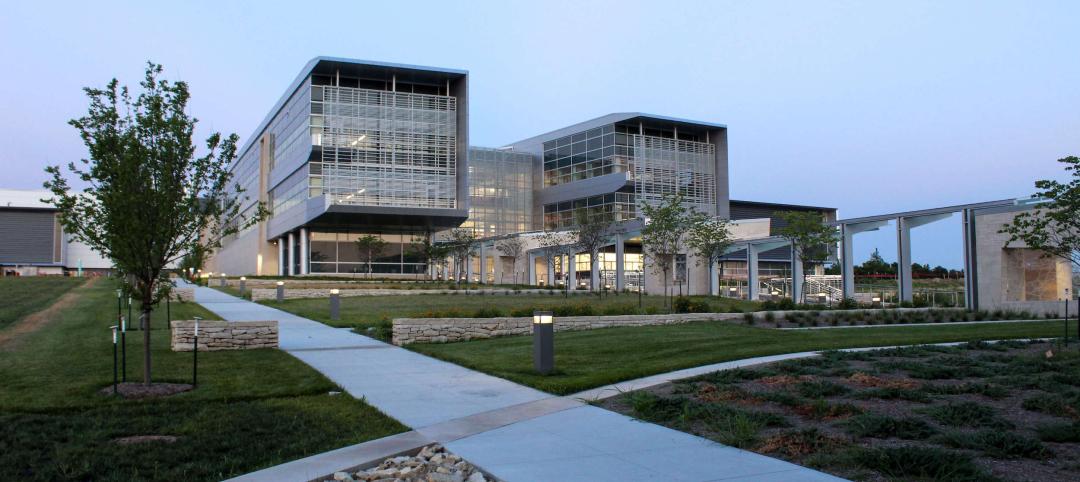The American Concrete Institute (ACI) and Concrete Reinforcing Steel Institute (CRSI) announce the launch of the new Adhesive Anchor Installer Certification program.
In the summer of 2006, a portion of the concrete ceiling of the Central Artery/Tunnel Project in Boston, Mass., also known unofficially as the “Big Dig,” collapsed, killing a motorist and injuring another. The National Transportation Safety Board (NTSB) released its accident report soon after and made recommendations to several parties, including the American Concrete Institute. The recommendation to ACI was to use its “building codes, forums, educational materials, and publications to inform design and construction agencies of the potential for gradual deformation in anchor adhesives under sustained tensile-load applications.”
“As part of the process of adopting the design procedures into the ACI 318 Building Code, it became clear to the ACI 318 Code Committee members that a certification program was imperative for successful installation of these anchors under certain conditions,” explained Neal Anderson, CRSI Vice President of Engineering. “This connection type should be thought of as being similar to a structural weld, in that an adhesive anchorage is usually a key load carrying connection in a structure. As such, proper training and certification is crucial for its proper installation.”
As part of the overall response to the recommendations of the NTSB, ACI has partnered with the Concrete Reinforcing Steel Institute (CRSI) to develop a certification program for Adhesive Anchor Installers. Additionally, Adhesive Anchor Installer Certification is a new requirement in ACI 318-11, Building Code Requirements for Structural Concrete, for anchorages in sustained tension loading conditions and installation orientations from horizontal to vertically upward (overhead). ACI 318-11 was recently released.
To satisfy the new ACI 318-11 certification requirements, the following components of the ACI / CRSI certification program were developed by ACI Committee 601-A and its main oversight body, ACI CPC – Certification Program Committee:
• Development of a 75-question written examination – The exam covers information on adhesive concrete anchor installation in regards to preparing for installation, drilling anchor holes, cleaning anchor holes, injecting adhesive using cartridge systems, installing adhesive capsule systems, and installing anchors. The exam was developed under the direction of Professional Testing Services of Orlando, Fla., in accordance with recognized ANSI guidelines.
• Development of a performance exam – Candidates must be able to read, comprehend, and execute the generic Manufacturer’s Printed Installation Instructions (MPII) for the installation of an anchor in a vertical-down position, and the ability to inject adhesive to the proper depth into simulated holes in an overhead (vertical-up) position with both a rigid applicator tip and flexible stinger end with piston plug in a manner that produces results meeting program requirements.
The performance examination required creation of a generic MPII, representing the combined content of typical MPIIs from the various anchor manufacturers. In working with the Concrete Anchor Manufacturers Association (CAMA), a generic set of installation instructions was developed for use the performance portion of the certification program.
ACI and CRSI completed two pilot programs earlier this year with a total of 35 participants taking both the written and performance examinations. Based on the results of the pilot programs, passing score criteria were finalized for both the written and performance components of the exam.
At the present time, the ACI/CRSI Adhesive Anchor Installer Certification program is going to market in specific geographical areas. Typically, ACI Certification programs are sponsored and conducted by Local Sponsoring Groups (LSGs), which include ACI chapters and other concrete-related businesses and associations around the world. To date, more than 30 LSGs have signed on to prepare and eventually conduct this certification program. Presently, the following groups have undergone the LSG orientation class and are currently positioned to offer the Adhesive Anchor Installer Certification program: ACI Illinois Chapter, ACI Eastern Pennsylvania & Delaware Chapter, and the ACI San Diego International Chapter. Other LSGs are in the process of being oriented into the program mechanics. The phase-in period is expected to be commensurate with the adoption of ACI 318-11 into revised editions of local building codes and/or incorporation of the requirements into project construction documents by licensed design professionals.
As with many of ACI’s certification programs, a training program is currently in development for the Adhesive Anchor Installer Certification program to allow certification candidates to train and study before taking the certification tests.
The training program is expected to be ready by the end of 2011.
A directory of ACI Local Sponsoring Groups that conduct certification testing can be found by visiting the following website: http://www.concrete.org/CERTIFICATION/CERT_SPON.HTM. BD+C
Related Stories
Mass Timber | Jul 11, 2023
5 solutions to acoustic issues in mass timber buildings
For all its advantages, mass timber also has a less-heralded quality: its acoustic challenges. Exposed wood ceilings and floors have led to issues with excessive noise. Mass timber experts offer practical solutions to the top five acoustic issues in mass timber buildings.
Multifamily Housing | Jul 11, 2023
Converting downtown office into multifamily residential: Let’s stop and think about this
Is the office-to-residential conversion really what’s best for our downtowns from a cultural, urban, economic perspective? Or is this silver bullet really a poison pill?
Adaptive Reuse | Jul 10, 2023
California updates building code for adaptive reuse of office, retail structures for housing
The California Building Standards Commission recently voted to make it easier to convert commercial properties to residential use. The commission adopted provisions of the International Existing Building Code (IEBC) that allow developers more flexibility for adaptive reuse of retail and office structures.
Laboratories | Jul 10, 2023
U.S. Department of Agriculture opens nation’s first biosafety level 4 containment facility for animal disease research
Replacing a seven-decade-old animal disease center, the National Bio and Agro-Defense Facility includes the nation’s first facility with biosafety containment capable of housing large livestock.
Adaptive Reuse | Jul 6, 2023
The responsibility of adapting historic university buildings
Shepley Bulfinch's David Whitehill, AIA, believes the adaptive reuse of historic university buildings is not a matter of sentimentality but of practicality, progress, and preservation.
Market Data | Jul 5, 2023
Nonresidential construction spending decreased in May, its first drop in nearly a year
National nonresidential construction spending decreased 0.2% in May, according to an Associated Builders and Contractors analysis of data published today by the U.S. Census Bureau. On a seasonally adjusted annualized basis, nonresidential spending totaled $1.06 trillion.
Architects | Jul 5, 2023
Niles Bolton Associates promotes Jeffrey Smith, AIA, to President and C. Cannon Reynolds, AIA, to Managing Director
Niles Bolton Associates (NBA), a leading architecture, planning and design firm, announces leadership changes as a part of its ongoing commitment to future growth. Current Executive Vice President, Jeffrey Smith, AIA, has been named President and C. Cannon Reynolds, AIA, has been named Managing Director effective June 30, 2023.
Mixed-Use | Jun 29, 2023
Massive work-live-play development opens in LA's new Cumulus District
VOX at Cumulus, a 14-acre work-live-play development in Los Angeles, offers 910 housing units and 100,000 sf of retail space anchored by a Whole Foods outlet. VOX, one of the largest mixed-use communities to open in the Los Angeles area, features apartments and townhomes with more than one dozen floorplans.
Office Buildings | Jun 28, 2023
When office-to-residential conversion works
The cost and design challenges involved with office-to-residential conversions can be daunting; designers need to devise creative uses to fully utilize the space.
Architects | Jun 28, 2023
CSHQA hires first CEO in company's 134-year history
The Board of Directors of CSHQA announced the appointment of Ryan D. Martin, AIA NCARB as Chief Executive Officer.

















